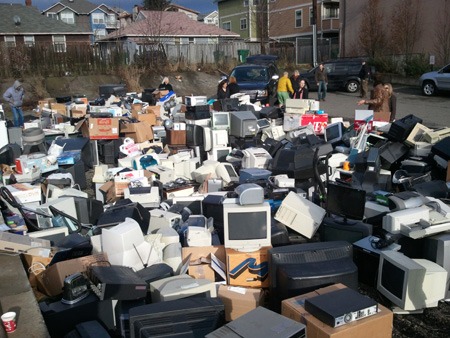The global movement towards responsible waste management and environmental justice has taken a significant step forward with the ratification of the Ban Amendment to the Basel Convention by the Caribbean country of St. Kitts and Nevis. This milestone brings the international waste dumping prohibition one step closer to becoming enforceable international law.
United Nations. New York, NY, USA. August 30, 2019. The Caribbean country of St. Kitts and Nevis deposited their ratification of the Ban Amendment to the Basel Convention yesterday, moving the global waste dumping prohibition one country away from entry into the force of international law. The Ban Amendment, adopted by the Parties to the Basel Convention in 1995, prohibits, for those countries ratifying it, the export of hazardous wastes from member states of the European Union, Organization for Economic Cooperation and Development and Liechtenstein to all other countries. Currently, 96 countries have ratified.
The Ban Amendment, adopted in 1995 by the Parties to the Basel Convention, specifically prohibits the export of hazardous wastes from member states of the European Union, Organization for Economic Cooperation and Development (OECD), and Liechtenstein to all other countries. This amendment, currently ratified by 96 countries, represents a crucial agreement for global environmental justice.
The Ban Amendment – called for by European, developing countries, and environmental and human rights groups in the early 1990s – has been hailed as a landmark agreement for global environmental justice. This amendment, in view of the recent epidemic of unwanted wastes exported from North American and European countries ending up in Asia and Africa, is seen as more relevant than ever.
Instances of American e-waste being illicitly exported to Hong Kong and discovered in hidden e-waste junkyards, as exposed by the Basel Action Network (BAN) through the use of GPS trackers, highlight the criminal nature of this trade. Under the ratified Ban Amendment, such practices will be deemed illegal, a significant step towards curbing this damaging cycle. China, one of the countries affected by this trade, has already ratified the Ban Amendment.
American e-waste exported by so-called “electronics recyclers” dumped in hidden Hong Kong e-waste junkyard discovered by BAN GPS trackers. This trade is criminal traffic and will be illegal under the Ban Amendment which has been ratified by China. Copyright BAN, March 2016.
“The entry into force of the Ban Amendment has been a long time coming and we are now very close to that day,” said Jim Puckett, founder, and director of the Basel Action Network (BAN). “The Basel Ban is very important to the many countries around the world that each day receive hundreds of containers of unwanted hazardous electronic and contaminated household wastes with much of that waste contaminating their environment and harming their population. We applaud St. Kitts and Nevis and now urge all countries that have not already done so to move forward with ratification.”
It is worth noting that only countries that were Parties present at the third meeting of the Basel Convention in 1995 can be counted towards the entry into force. The remaining countries that still need to ratify the Ban Amendment include Australia, Israel, Bahamas, Japan, Bangladesh, Mexico, Brazil, New Zealand, Canada, Pakistan, Comoros, Philippines, Costa Rica, Republic of Korea, Croatia, Russian Federation, Cuba, Senegal, Democratic Republic of Congo, United Arab Emirates, India, and Vietnam.
According to BAN the United States, the world’s most wasteful country per capita, has not ratified the Basel Convention, nor the Ban Amendment. Consequently, the U.S. still allows the export of many hundreds of containers of hazardous e-waste to leave their shores each week for developing countries where they are processed by informal sector actors in primitive, and highly polluting operations. BAN has tracked such exports using GPS trackers and has found that 40% of e-waste delivered to US recyclers finds its way off-shore to Asian and African countries. Such exports are considered criminal traffic once they leave U.S. shores. Other developed countries like Canada, Japan, Australia, and New Zealand, likewise, have e-waste export problems and they too have so far refused to ratify the Ban Amendment.

